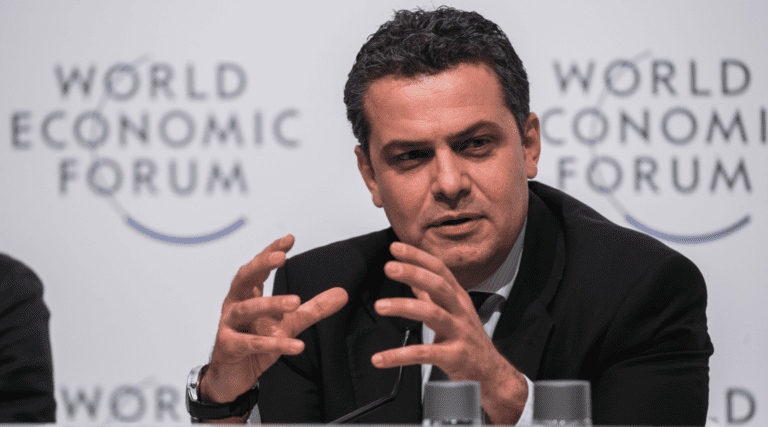Dr. Yasar Jarrar
Managing Partner at Gov Campus, Partner at The Posterity Institute, Professor at Hult International Business School (UAE/USA)
The Gulf Cooperation Council (GCC) economic landscape is undergoing a seismic shift, marked not by the dwindling reserves beneath its lands but by a bold leap into diverse sectors poised to define the future. GCC countries namely Saudi Arabia, UAE, and Qatar, are at the vanguard of this transformation, which promises not only to redefine their roles on the world stage but also to ensure long-term economic sustainability and resilience.
Historically dependent on oil, these economies are embracing a new era characterized by strategic diversification into technology, tourism, finance, and sustainable industries. This shift is driven by the necessity to transcend the volatile oil market and to prepare for a post-oil era. It reflects a broader global trend where regional economic clusters, or ‘trade clubs’, are increasingly favored over traditional globalized trade systems. This reconfiguration, highlighted by the World Economic Forum annual meeting at Davos 2025, offers a new model of economic interaction that aligns with political, economic, and security interests.
Today, Saudi Arabia, the UAE, and Qatar offer unique and ambitious examples of economic transformation, strategically shifting from their traditional oil-based economies to become diverse global powerhouses. This evolution placed them among the world’s top 20 most competitive economies according to IMD 2024 Competitiveness ranking ahead of Germany, Canada, and South Korea. It also made them hubs for major global events and significant financial activities, including a dominant share of IPOs in the Middle East and Europe. In fact, the GCC is now witnessing an “IPO Boom” and in 2023, more than 45% of all IPOs in EMEA were in this region and this is increasing year on year. In 2024, there were 54 IPOs raising 12.6$US billion.
“The GCC’s evolution from oil giants to diversified innovators is not just an economic necessity but a strategic redefinition of the region’s role in a globalized economy. As we harness technology and innovative economic models, we are not only participating in the global market; we are actively shaping its future.”
In the last decade, these three GCC nations were also pivotal in hosting a range of mega-events, including Formula 1 races. Hosting 12.5% of the Formula 1 races for the year, the GCC significantly contributes to the motorsports industry, which boasts an impressive annual economic output of approximately €160 billion.
Qatar’s hosting of the 2022 FIFA World Cup and the UAE’s successful Expo 2020, followed by Saudi Arabia’s upcoming role as host for both the 2034 World Cup and Expo 2030, exemplify the GCC’s strategic use of major international events to bolster their global standing and economic diversification. These prestigious events have not only demonstrated the GCC’s advanced logistical capabilities but have also significantly enhanced their international profiles. The economic impact of such events is profound, energizing local industries including tourism, hospitality, and services. For instance, the 2022 World Cup in Qatar contributed substantially to the local economy, with significant investments in infrastructure expected to yield long-term benefits for tourism and commerce. Similarly, the Dubai Expo 2020 attracted millions of visitors, showcasing innovations and fostering international collaborations, thus setting a precedent for how cultural and sporting events can serve as catalysts for economic growth and diversification in the region.
The substantial growth in the non-oil sectors of these countries is particularly noteworthy – referred to by the IMF as a bright spot in the global economy. In 2024, non-oil GDP growth rates were impressive across the GCC, with the UAE growing at 4%, Saudi Arabia at 3.7%, and Kuwait at an even higher 4.7%. This growth is expected to continue. The only way, for the coming years, is up.
The GCC’s proximity to burgeoning markets in India and Africa, home to the world’s next billion middle-class consumers, offers unparalleled economic opportunities. These regions are expected to exhibit explosive growth in consumer markets, presenting a ripe environment for GCC countries to establish themselves as central hubs in the emerging global trade landscape. The region’s global connectivity is spearheaded by world-class airlines like Emirates, Etihad, Qatar Airways, and soon, Riyadh Air, enhancing its economic reach and integrating these nations deeper into the global economic fabric.
The GCC, with its strategic geographical positioning and vast resources, is turning potential into prosperity. In fact, the city of Abu Dhabi now has a global brand as “the capital for capital”. As of 2024, the GCC manages over $4.3 trillion in sovereign wealth funds and holds more than 40% of the world’s oil reserves, and over 25% of the global gas reserves. Significant investments in technology, particularly artificial intelligence, underline the GCC’s commitment to establishing a knowledge-based economy. Initiatives like Saudi Arabia’s Vision 2030 and the UAE’s AI Strategy 2031 highlight this focus, aiming to harness cutting-edge technologies to revolutionize industries from energy to finance and beyond. These strategies are supported by substantial reforms, such as the introduction of corporate income tax aimed at ensuring fiscal sustainability and diversifying revenue streams away from oil.
Yet, the region’s most significant asset in this era of transformation is its youthful demographic. With over 50% of its population under the age of 25, the GCC contrasts sharply with ageing populations in the West and parts of East Asia. As these nations continue to invest in building competitive industries and innovating unique economic models, they not only adapt to the global economic order but also lead it.
This moment is not just an opportunity but a necessity. As the world watches, the GCC is not just participating in the global economy—it is actively shaping its future.


